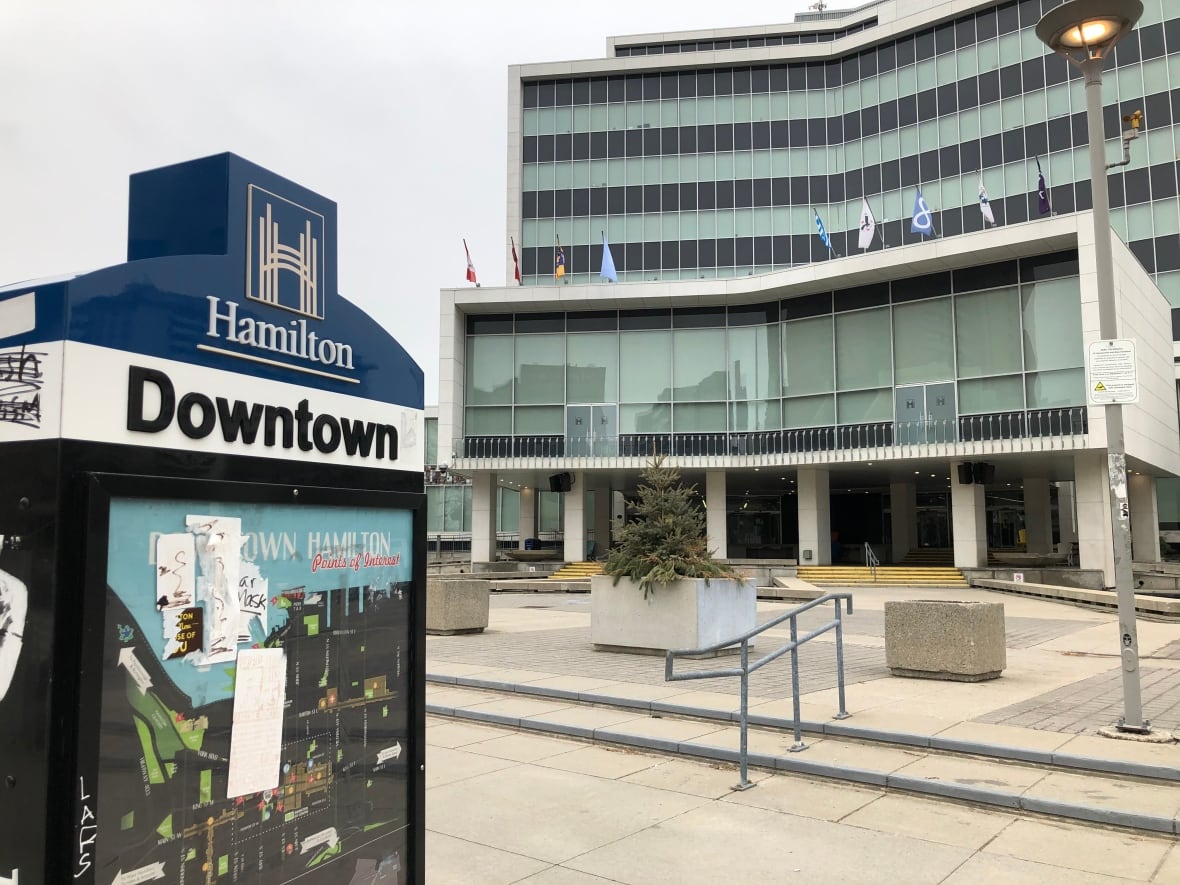CBC News: Hamilton will draft bylaw taxing vacant homes to increase rental properties on market
Posted July 6, 2021
Posted July 6, 2021
 The City of Hamilton will draft a bylaw on taxing vacant homes, pending approval by city council, in the efforts to increase the amount of rental properties available.
The City of Hamilton will draft a bylaw on taxing vacant homes, pending approval by city council, in the efforts to increase the amount of rental properties available.
Several members of Hamilton ACORN, a tenants rights group, and other local organizations said the tax would help renters by upping the housing supply and preventing affordable units from becoming vacant in the first place.
“This is an important tool Hamilton can use to prevent speculation of the city’s market affordable housing stock,” said Dayna Sparkes, ACORN’s east-Hamilton chair, in a general issues committee meeting Monday.
The decision to draft a bylaw passed on a vote of 10 to two, with Ward 5 (Centennial) Councillor Chad Collins and Ward 6 (east Mountain) Councillor Tom Jackson opposed. Councillors Maria Pearson (Ward 10) and Sam Merulla (Ward 4) abstained.
If approved by council, staff will report back to the general issues committee with the draft and reach out to the public for consultation.
This follows news of a Toronto-based developer’s plans to buy single-family homes in cities including Hamilton and rent them out.
Hamilton was also recently ranked as North America’s third least affordable city in a report from Oxford Economics.
City says revenues will offset costs
Annual operating costs for the program, city staff say, would likely fall between $1 million and $1.3 million.
While revenues depend on the tax rate and the number of properties impacted, the minimum estimates provided in a city report on vacant properties range from $800,000 to $1.6 million.
Jackson said he was “struggling” with the costs of hiring eight full-time staff, which would be needed to work the program.
Mayor Fred Eisenberger said “the bottom line” was that the move would get more units into use. He said the city pays to provide affordable housing and would quickly “eat through” the estimated costs on only three units.
“If you get three units back into operations in our community [through the tax], in my mind, that’s a break even,” he said.
Staff know of 221 vacant homes in Hamilton
Staff were directed in February to report on vacant properties in Hamilton and a possible tax. The information went before the committee Monday.
Right now, owners whose properties are vacant — though some are exempted — must register them on a city registry. If they don’t, they can be fined. It costs $297 to register, and inspection costs amount to $840 a year.
The city says it’s alerted to empty properties by complaints and municipal law enforcement. It knows of 325 vacant buildings, of which 221 are residential.
Monica Ciriello, director of licensing and bylaw services, said 183 are single-family dwellings, 11 are duplexes, and 27 are multiple dwellings.
But that isn’t a firm count — for example, it doesn’t include vacant units within otherwise occupied buildings.
The city said it could implement a mandatory property declaration to identify an accurate number. That declaration would be required in order to roll out the potential tax on vacant homes.
Taxes could mean $800K to $1.6M in revenue or more
It also provided two estimates for revenues based on the average assessed property value of $381,000.
Taxing 221 vacant residential properties at a rate of 1 or 2 per cent, the city said, would mean revenues between $800,000 to $1.6 million.
But if 0.5 per cent of the approximate 176,500 residential properties were vacant, that same tax rate would mean between $3.3 million and $6.7 million in revenue.
Sparkes urged the city to consider a rate of higher than one per cent to ensure it’s “strong enough.”
She also said the tax should cover units for which a building permit has been issued or under review if they remain vacant past an “acceptable amount of time,” as well as buildings that are partially empty.
Ciriello and Brian McMullen, director of financial planning, administration and policy, both said staff will look at various situations, including aspects like snowbird exemptions.
Using revenue for housing initiatives
McMullen said Vancouver — which has implemented a tax since 2017 — uses revenue for initiatives that aim to “improve living conditions and increase the supply of affordable housing.”
Vancouver has generated “significant revenues” of around $36 million plus penalties and fines, he said. It also “accomplished the goals” by reducing vacant properties from around 2,500 to approximately 1,900.
Ottawa recently approved moving forward with a vacant residential unit tax and is looking at doing the same thing, McMullen said.
Toronto approved a home tax plan to start in 2022 and a report with more details will go before a city committee this week.
The city report noted revenue decreases as the number of empty properties falls. It said that “consideration” would need to be given to the initial costs, saying that based on experiences and other municipalities, a portion of revenues will still be needed to support staffing and administration costs of the program.
***
Article by Christine Rankin for CBC News
